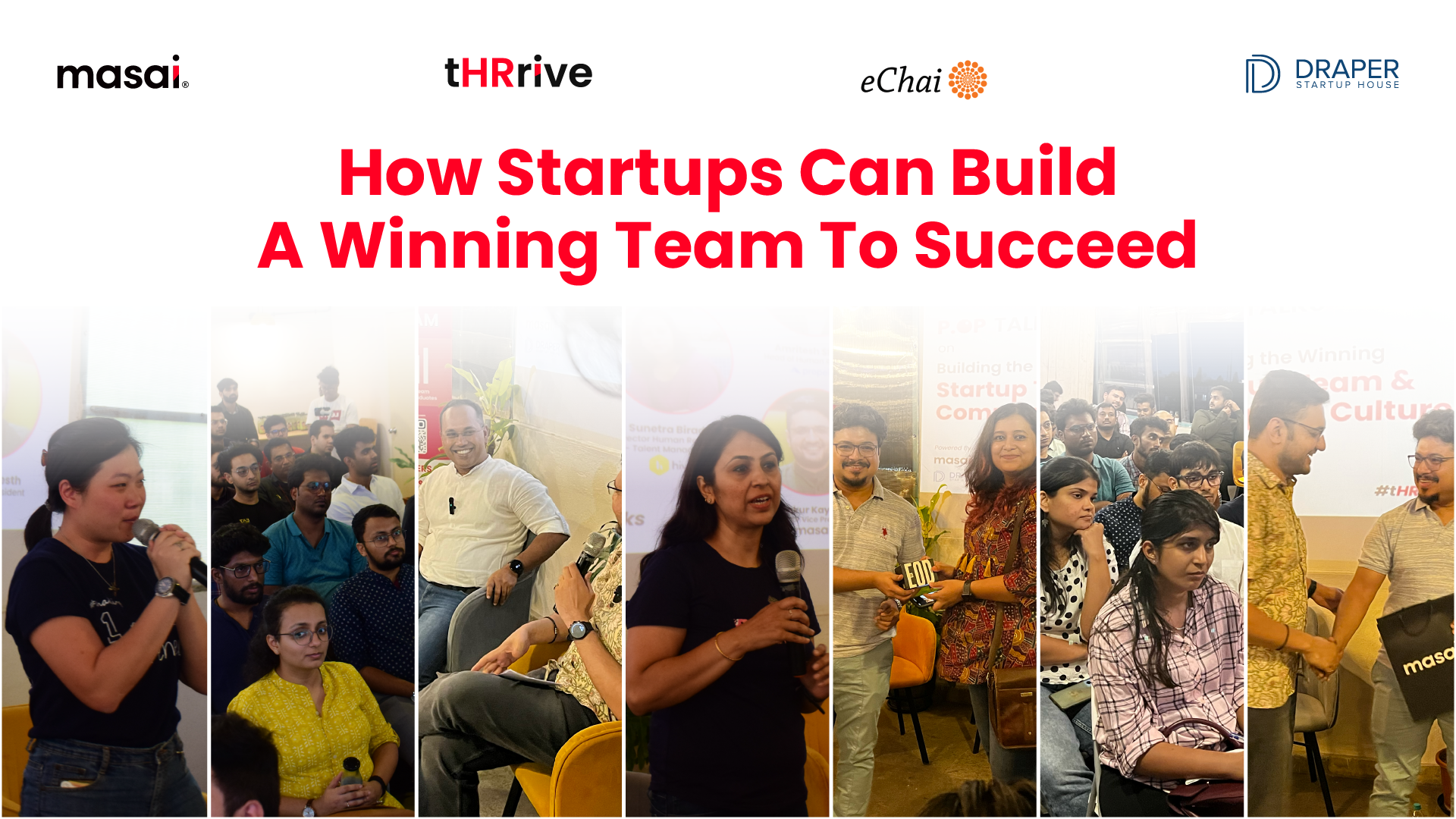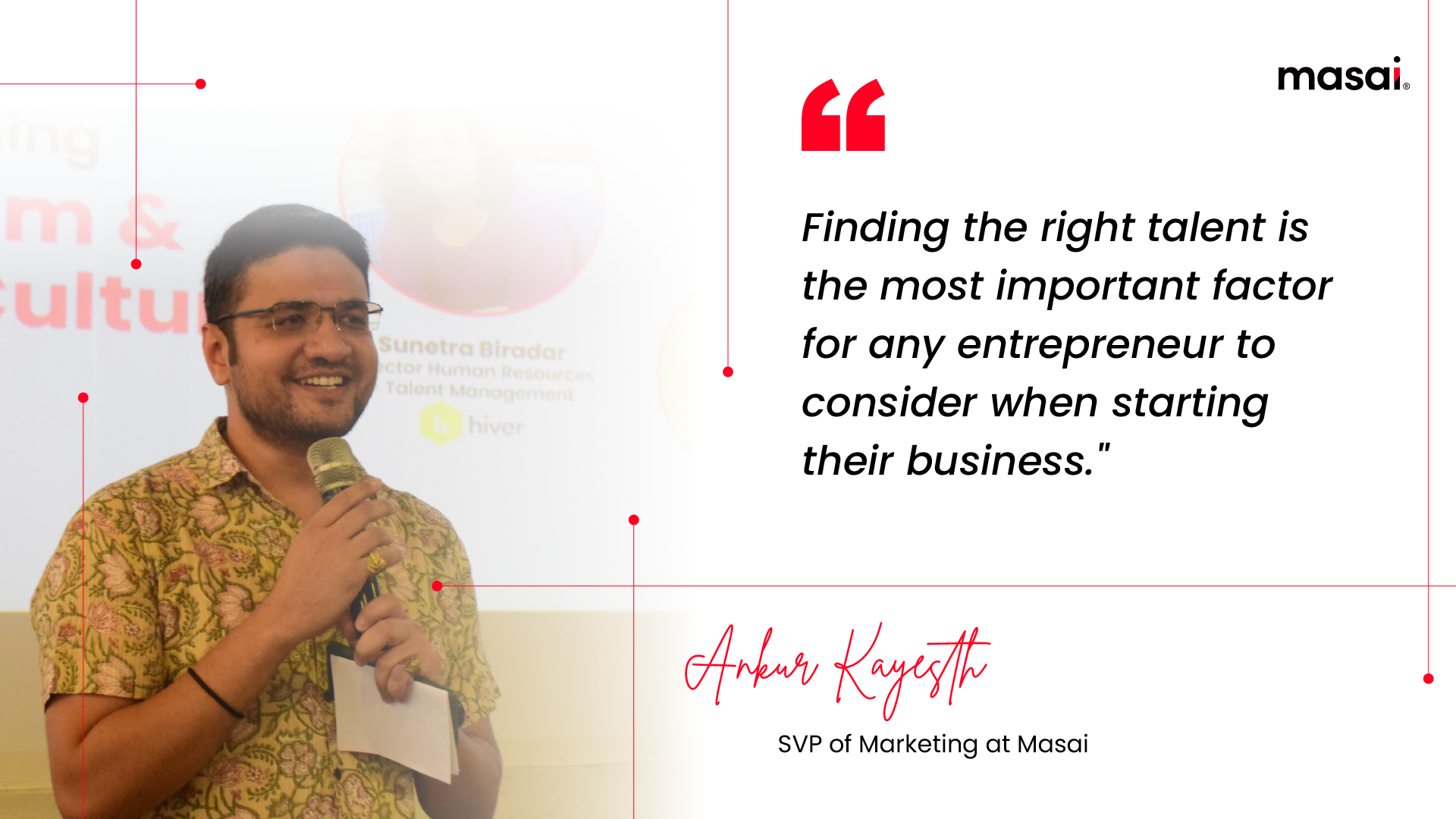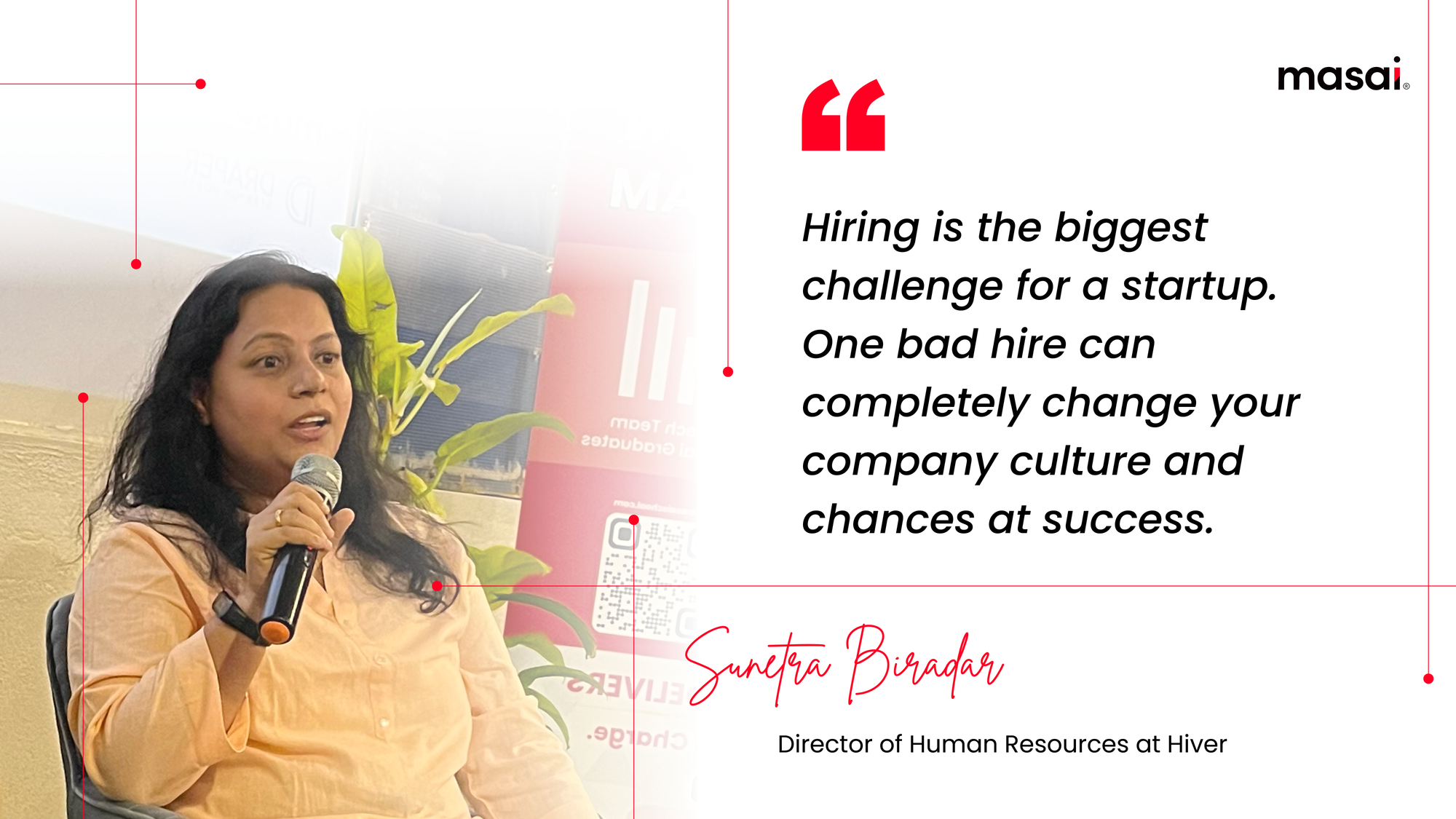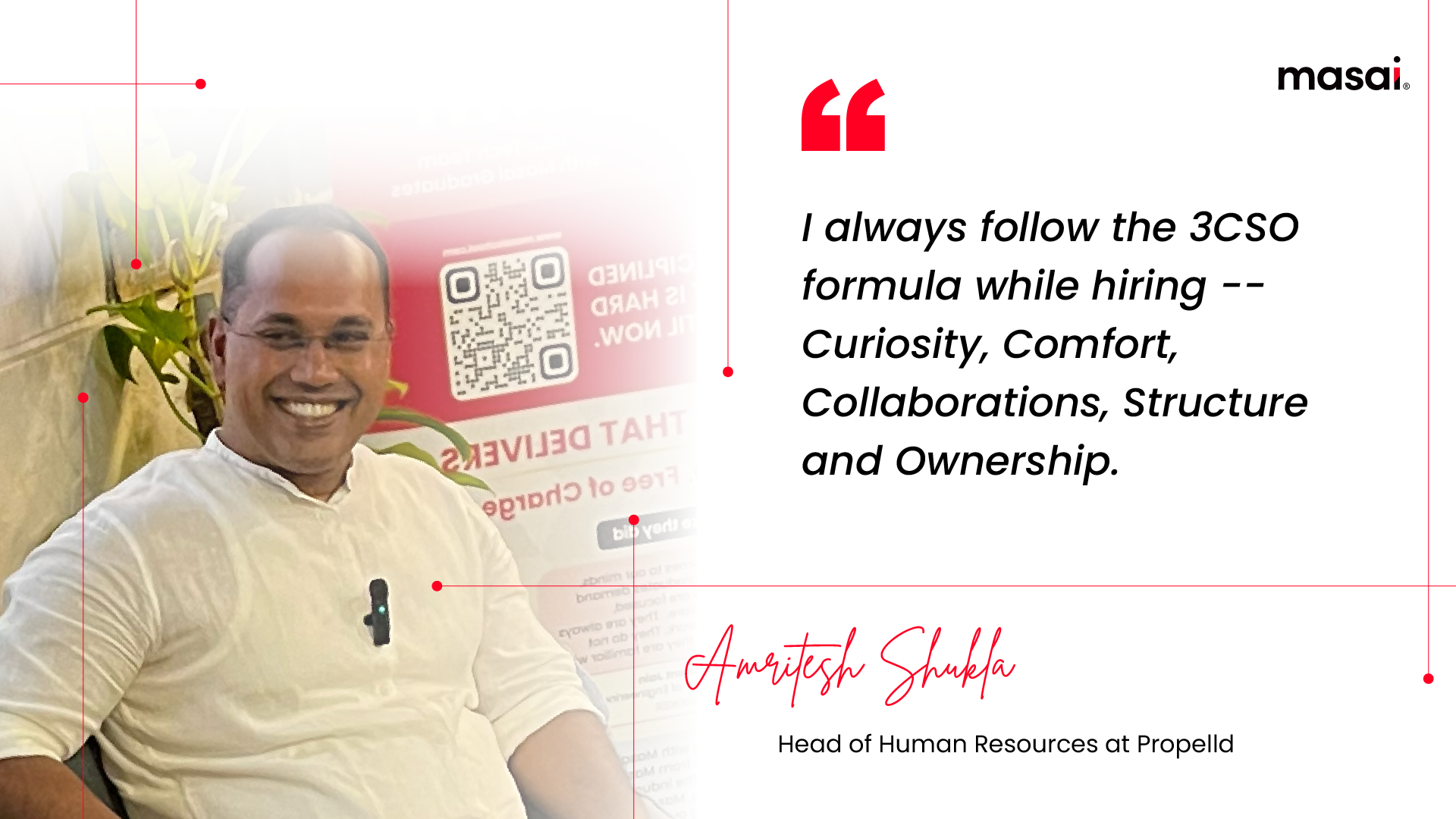How Startups Can Build A Winning Team To Succeed
A warm, engaging conversation around how first-time business owners can build a successful and sustainable workforce.

What goes into starting and building a startup?
A lot – from a great product or idea to a solid revenue structure to smart marketing plans, the list is endless. But what’s the one aspect of business that’s quite crucial for any startup to succeed but sometimes gets overlooked? Human Resources Management. Very few startups have a human resources professional amongst its founding members, let alone an HR department. Thus all the relevant responsibilities - talent acquisition, talent management, employee engagement, payroll, etc. fall on the shoulders of leaders who may not necessarily be equipped to handle them.
To discuss how startup founders can start smart with the right HR practices, Masai invited two respected and tremendously experienced HR leaders for a fireside chat:
Amritesh Shukla, Head of Human Resources at Propelld
Sunetra Biradar, Director of Human Resources at Hiver
The discussion, led by Ankur Kayesth, Senior VP, Masai School was on the topic of “Building The Winning Startup Team and Company Culture”

Hiring Right
"Hiring is the biggest challenge for a startup. One bad hire can completely change your company culture and chances of success. Who you hire can make or break your company," said Sunetra Biradar, who has specialised in working with startups in her career of over 15 years.
Ankur kicked off the conversation on this note by discussing the importance of hiring the right talent at the very start of a business. Sunetra explained that in most startups, 'It is the founders who directly handle the hiring process, which may not be the wisest way to start." “Founders are smart, driven people but cannot do everything. They may not even have the right skill set to hire employees, which is why it's important to hire Talent Acquisition professionals first to help you with the hiring process,” she said.
She further continued how founders and entrepreneurs can approach the hiring process. One of the first things is to create an employee persona — what your ideal employee would look like and then start looking for candidates that fit those criteria. “Another crucial factor to consider is where you’re looking for candidates. You can’t go to the wrong place to find the right person,” Sunetra added.

Expanding on the same idea, Amritesh detailed five guidelines he follows when he's hiring someone – Curiosity, Comfort, Collaboration, Structure, and Ownership. “I see if the person is curious about the company, how it works, whether they’re asking questions. Then I ask myself if I’m comfortable with the person – if I’m not comfortable talking with them, then I know my team won’t be either,” he said and continued, “I try and gauge if they’re team players and can follow the structure or even build structure themselves and, finally, take ownership of the goals they’re working towards.” The qualities, Amritesh stressed, will define a company’s work culture and hence should be a priority.
Why Talent Acquisition
While getting the right talent is important, it’s also crucial to see how to get it – and that’s where talent acquisition comes in. But how effective can talent acquisition teams be, and are they worth the investment so early in the game? Many first-time entrepreneurs have this question that Ankur asked Amritesh: “But why does a startup need HR? This is a question that comes up often. Is it just to hire people? And if they’re so vital, how do you go about building an effective HR team?”
According to Amritesh, compliance is a major factor that requires an HR team. “An HR will ensure compliances are in place and keep functioning on track. But it’s common for compliances(laws, rules, and regulations concerning business functioning) to slip through the cracks as startups focus more on building a product and selling it. However, ignoring it can become an issue later,” he explained. Amritesh also explained that HRs are the ones who are responsible for putting automation into place as well as collecting and safeguarding all company data. These functions are integral to any company’s functioning.

Sunetra similarly outlined her criteria for hiring an effective HR team and that founders need to shift perspective and look at their prospective HRs as partners and not just recruiters. “An HR is the other team, apart from sales and marketing, that is constantly selling your company in the market. So, they can help you build the company you want to, from scratch,” she said and added that HRS must understand the business inside out, how to support and steer it.
As the highly engaging conversations came to a close, a few things stood out for all those first-time business owners — An HR can be your business’s best friend, and to see your business grow the way you envision it, hiring with purpose and clarity is important.


